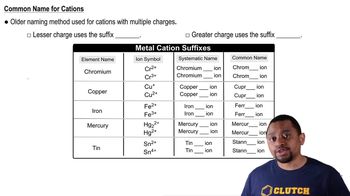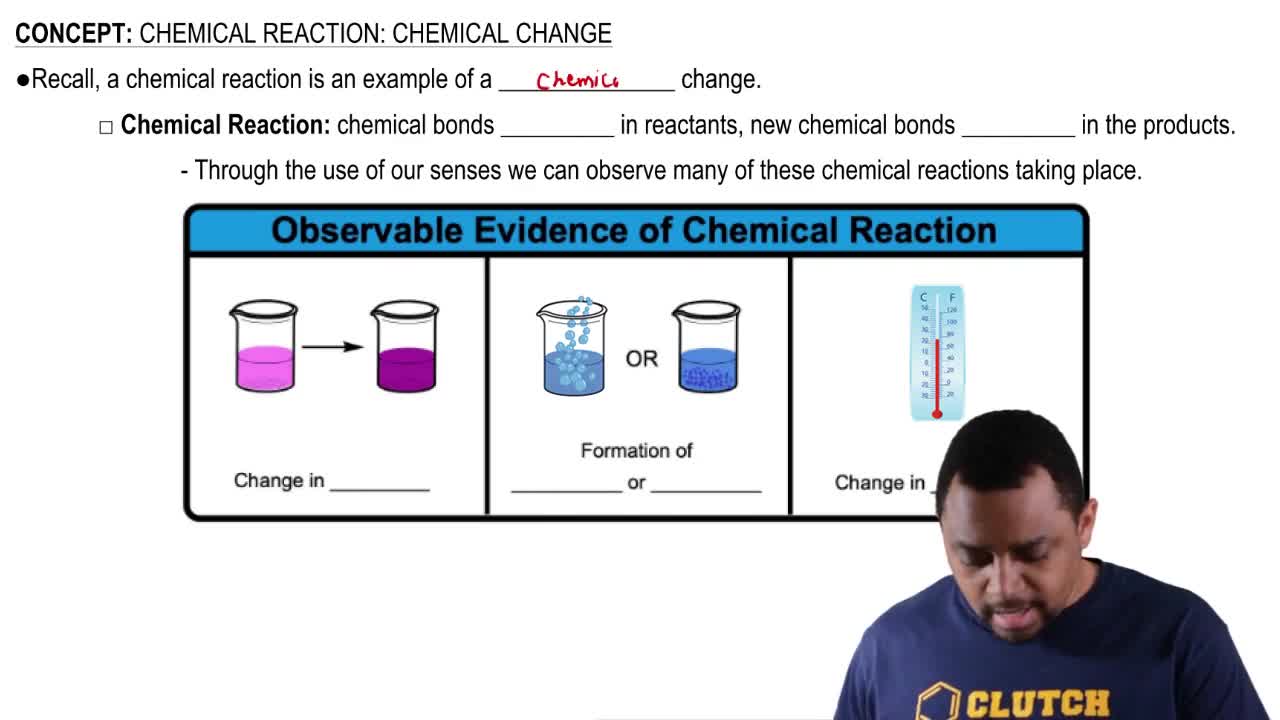Here are the essential concepts you must grasp in order to answer the question correctly.
Ionic Charge
Ionic charge refers to the electrical charge that an ion carries, which results from the loss or gain of electrons. In the case of Li⁺, lithium has lost one electron, giving it a positive charge. Understanding ionic charge is essential for identifying the nature of ions and their behavior in chemical reactions.
Recommended video:
Cation
A cation is a positively charged ion formed when an atom loses one or more electrons. Since Li⁺ is derived from lithium, which has lost an electron, it is classified as a cation. Recognizing the difference between cations and anions (negatively charged ions) is crucial for understanding ionic compounds and their properties.
Recommended video:
Naming Monoatomic Cations Concept 2
Chemical Nomenclature
Chemical nomenclature is the system of naming chemical substances, including ions. For example, the ion Li⁺ is named lithium ion. Familiarity with nomenclature rules helps in accurately identifying and communicating about various chemical species, which is fundamental in chemistry.
Recommended video:
Chemical Reaction: Chemical Change Concept 1
 Verified step by step guidance
Verified step by step guidance Verified Solution
Verified Solution



 1:24m
1:24m